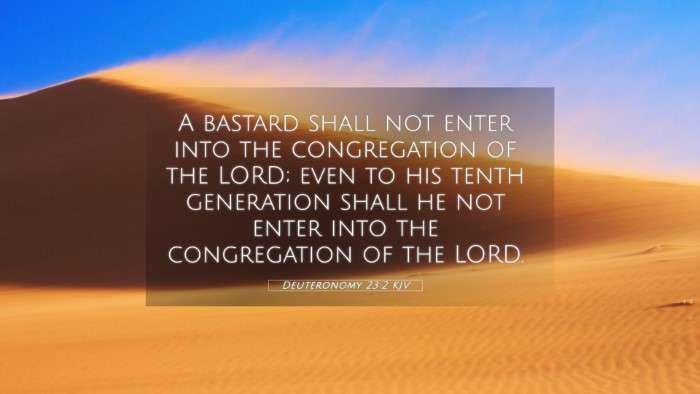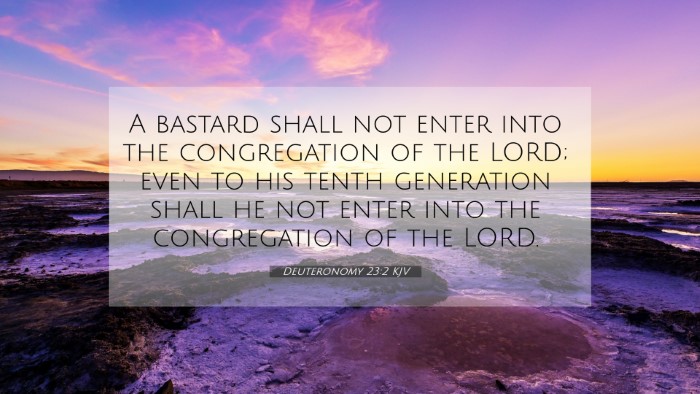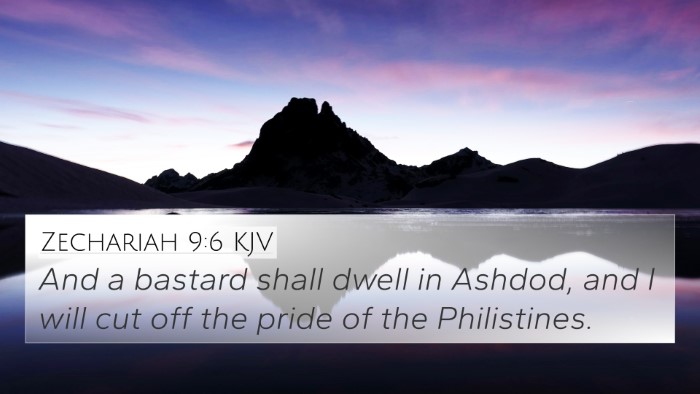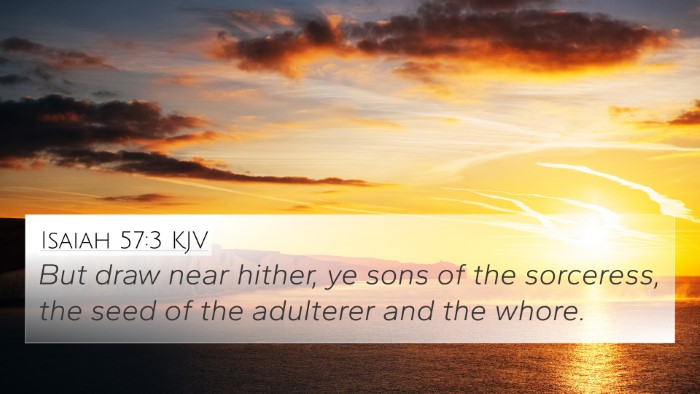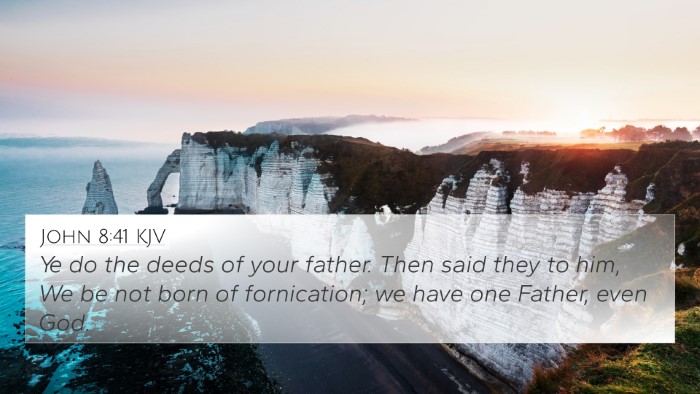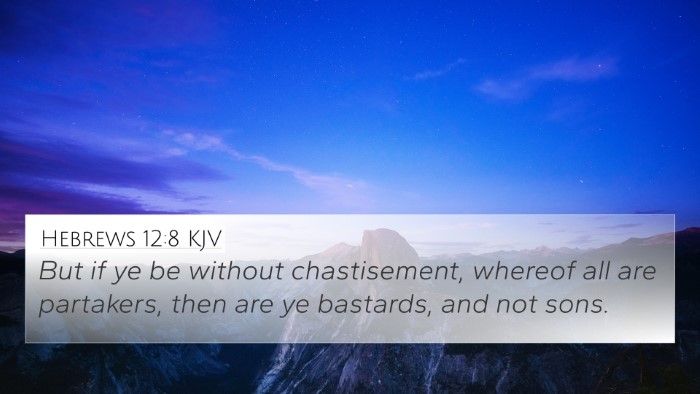Understanding Deuteronomy 23:2
Deuteronomy 23:2 discusses the exclusion of certain individuals from the assembly of the Lord, specifically stating:
"A bastard shall not enter into the congregation of the Lord; even to his tenth generation shall he not enter into the congregation of the Lord."
Meaning and Context
This verse is often interpreted in light of social and religious purity within Israelite society. Matthew Henry notes that the term "bastard" refers to someone born from illegitimate unions and signifies a broader theme of holiness and separation unto the Lord.
Albert Barnes emphasizes that this exclusion serves to maintain a distinct boundary for the community of believers, promoting purity in worship and conduct.
Adam Clarke points out that the phrase "even to his tenth generation" suggests a long-lasting consequence, instilling the notion of lineage and heritage that was significant in ancient Israel.
Key Insights from Commentaries
- Social Structure: The exclusion rules echo a concern for social order and moral integrity.
- Theological Implications: This verse raises theological discussions about grace and the inclusion of all people in God's family.
- Generational Consequences: The idea that consequences for certain actions can extend beyond the individual highlights the communal aspect of sin.
- Covenantal Community: The assembly is depicted as a covenantal community, requiring adherence to specific divine standards.
Cross-References
To enhance understanding, here are key Bible verse cross-references related to Deuteronomy 23:2:
- Exodus 20:14 - "Thou shalt not commit adultery." - highlights the importance of family integrity.
- Leviticus 21:17-21 - outlines requirements for priests, tying holiness to lineage.
- 2 Samuel 3:2-5 - discusses lineage and offspring, connecting to the concept of legitimacy.
- Matthew 1:5-6 - where Rahab, a non-Israelite, appears in the genealogy of Jesus, showing that inclusiveness can arise through faith.
- Galatians 3:28 - emphasizes that in Christ, social distinctions should not separate believers.
- Hebrews 12:14 - encourages the pursuit of holiness, a theme resonant in the call for purity in Deuteronomy.
- John 8:41 - addresses spiritual lineage and identity in relation to God.
Thematic Connections
By exploring thematic Bible verse connections, one can see the interplay between laws in Deuteronomy and Jesus' teachings on grace and inclusion. The narrative through both Old and New Testaments engages in an inter-biblical dialogue concerning purity, sin, and redemption.
To further expound on cross-referencing Biblical texts, using a Bible concordance can assist in tracing these connections:
- Bible Cross-Reference Guide: Utilize tools designed specifically to uncover related scriptures.
- Cross-Reference Bible Study: A methodical way to engage with the scriptures while identifying patterns and themes.
- How to Use Bible Cross-References: In-depth techniques for digging deeper into scriptural context.
Conclusion
While the message of Deuteronomy 23:2 may seem strict, it serves to reflect the larger narrative of God's desire for a holy people. Understanding this verse in context and cross-referencing it with other scriptures opens a dialog about the permanence of God's standards, the compassionate overarching grace offered in Christ, and the hope of redemption for all.

